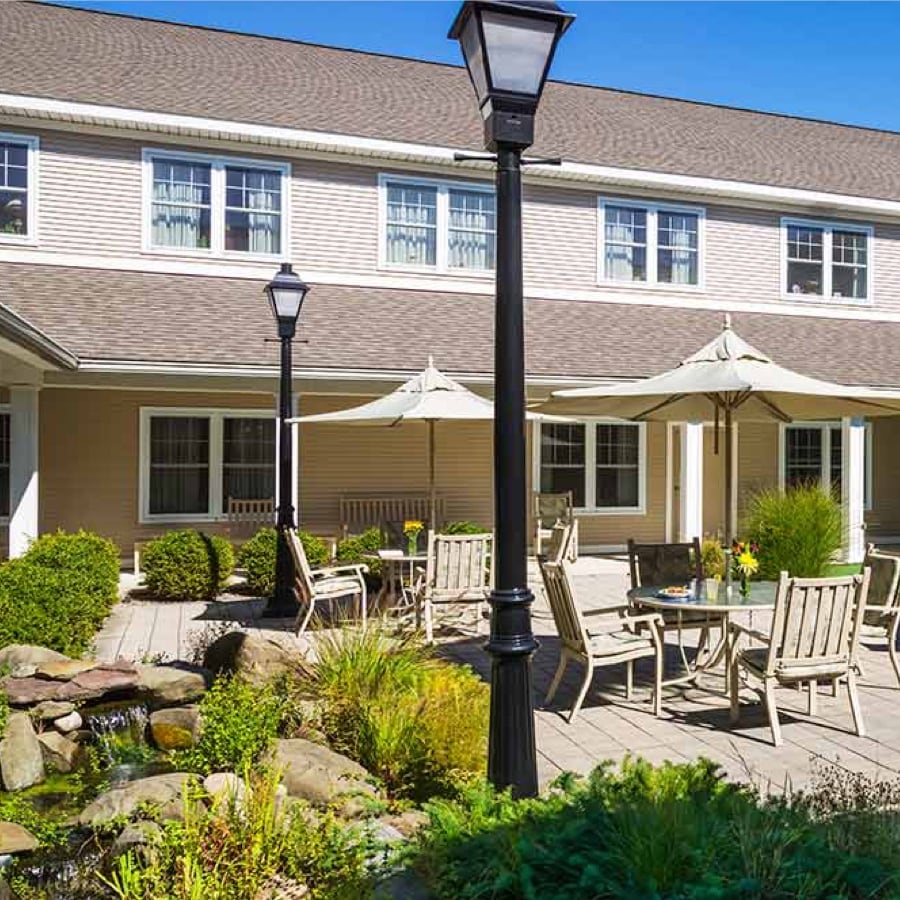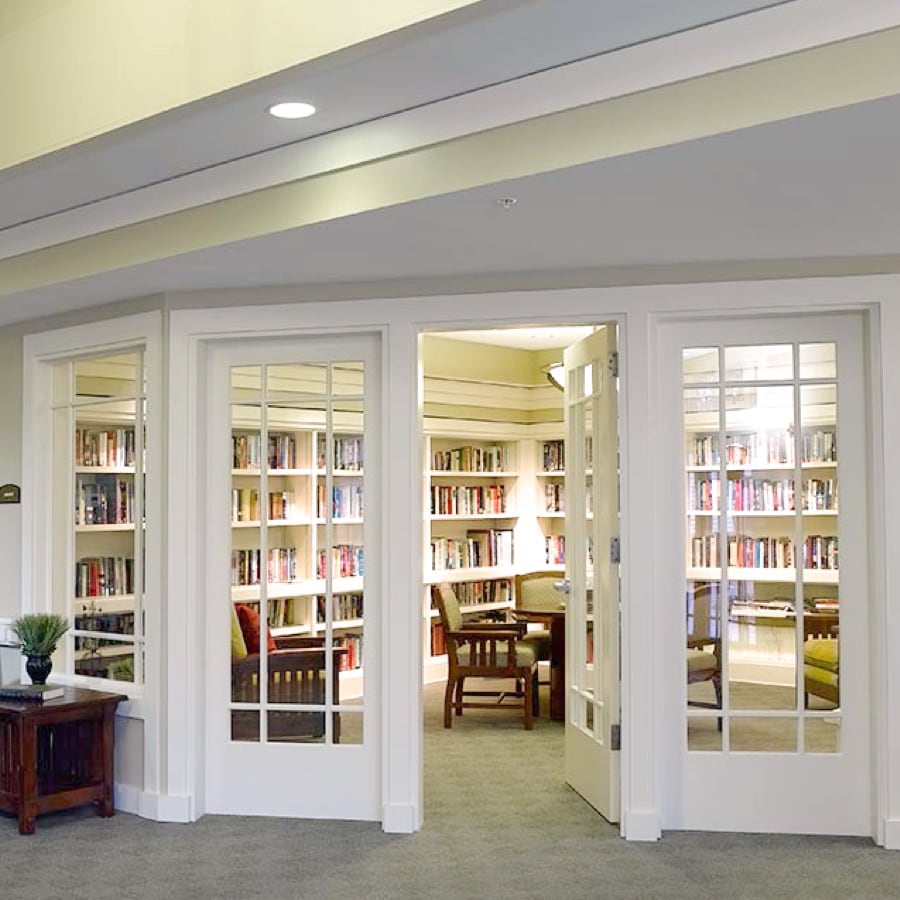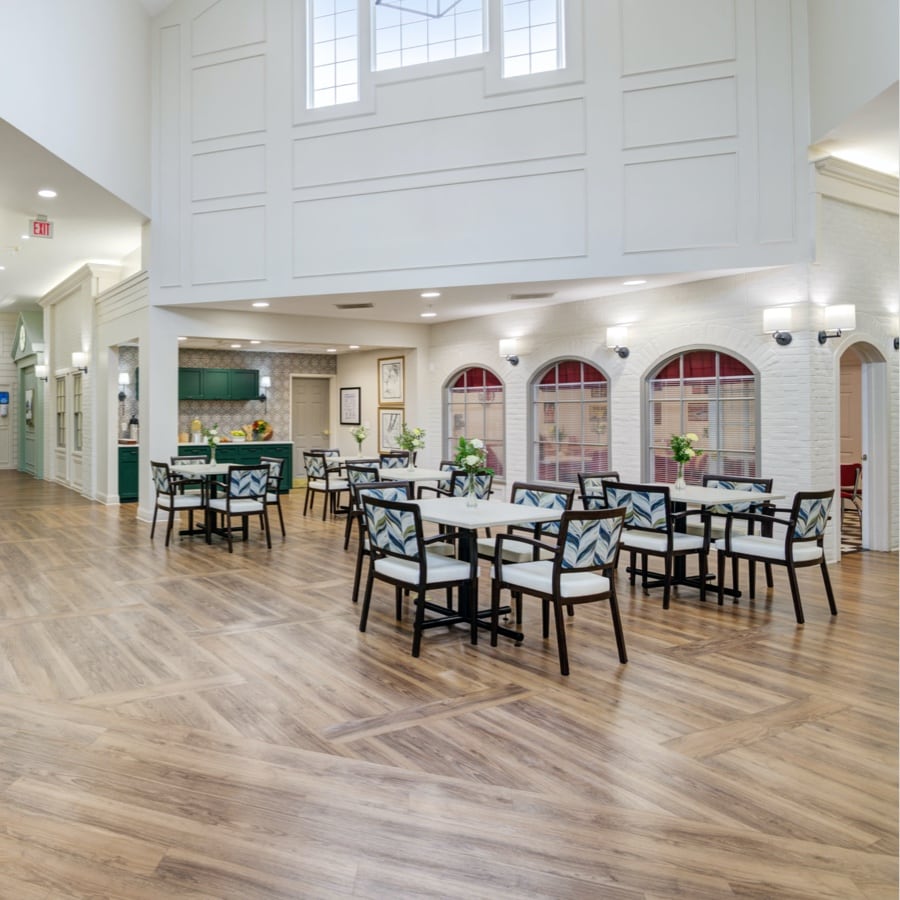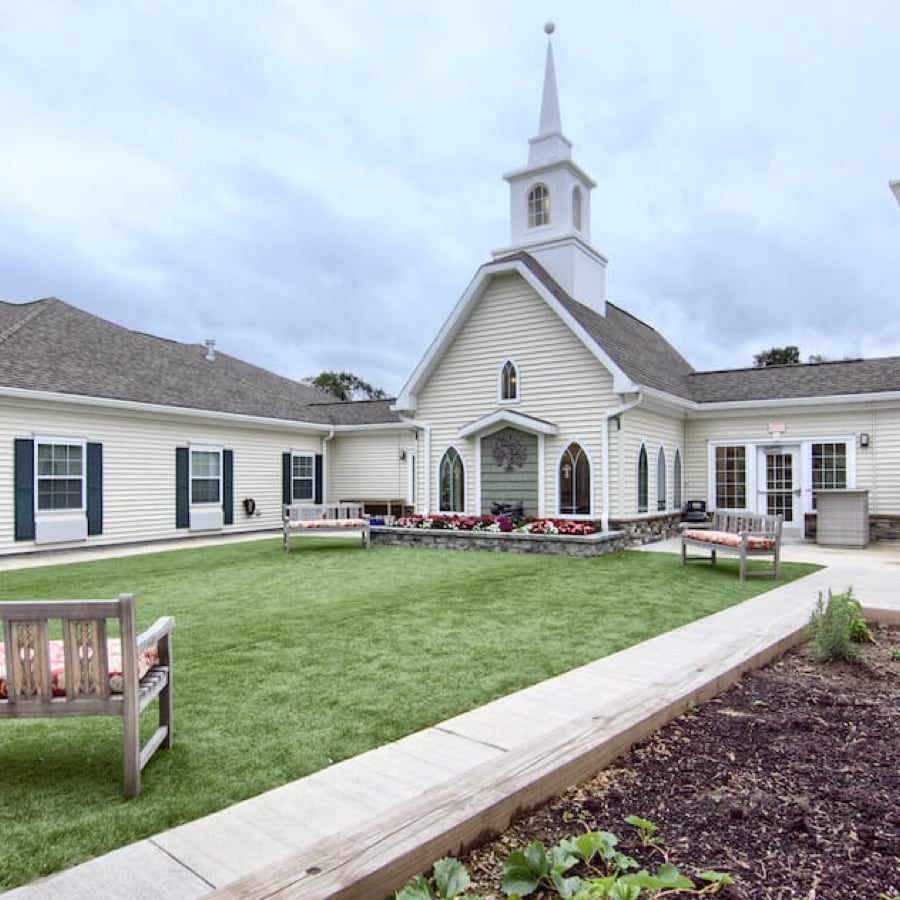Good nutrition is a vital component for healthy aging. Our bodies change as we get older and so do our nutritional needs. It’s important to understand just how eating right affects us physically and mentally, and how a supportive environment such as assisted living can play a major role in helping older adults get the nutrition they need—and enjoy mealtimes again.
The daily nutritional needs for seniors:
- Water
- Fiber
- Magnesium
- Potassium
- Calcium
- Vitamin D
- Unsaturated Fats
Why don’t seniors often get what they need?
- Poor absorption of nutrients. As a person ages, the body produces less of the fluids that it needs to process food in the digestive system. These changes can make it harder for the body to absorb important nutrients like folic acid and vitamins B6 and B12. Couple this with smaller food portions and lower caloric levels consumed by seniors, and you can see why the goal to hit the daily recommended intake of essential nutrients can become a bigger challenge.
- Lack of appetite. As we age, our senses are not as keen, and a reduced sense of smell and taste can reduce the appetite. And for senior adults, the same foods probably don’t taste the same as they once did, simply because we’ve lost a large percentage of the nearly 10,000 taste buds we were born with. Many seniors also take one or more medications for health conditions; these can cause side effects such as a lack of appetite or upset stomach, which can lead to poor nutrition.
- Physical factors. Arthritis and disability can be painful and make it harder to complete simple tasks. Standing to cook, carrying in bags of groceries, even peeling a potato or piece of fruit can be frustrating and even impossible.
What happens when seniors don’t get what they need?
- Health issues. Food insecurity is a lack of consistent access to enough food for every person in a household to live an active, healthy life. On average, seniors are at a major risk for consuming less than two-thirds of the recommended daily allowance. This low intake of food and nutrients is closely associated with an increased risk of developing conditions such as diabetes, high blood pressure, asthma, coronary artery disease and congestive heart failure.
Nutrition and assisted living: a healthy combination.
A wellness-oriented assisted living community offers important advantages for seniors when it comes to improving their nutritional intake, such as:
- Regular mealtimes. Living at home, a senior might be tempted to skip a meal or two. In a modern assisted living setting, meals are structured and residents dine together. Staff members will notice if a resident is missing a meal or has other changes in status that warrant attention. It’s a great example of how nutrition and assisted living work together to help keep residents healthy.
- Group dining. Many seniors often dine alone at home, which can be a risk factor for depression. When mealtimes are shared with others in assisted living, they often last much longer and provide a greater opportunity or seniors to get essential nutrients. Plus, an overwhelming majority of the seniors in one study said having someone to share their meals with makes mealtimes more satisfying.
Delicious, nutritious food.
Nutrition and assisted living are a good match, but one rule remains: if the food doesn’t taste good, it won’t get eaten. The good news is most senior living communities offer impressive menus that both meet nutritional needs and are delicious, often incorporating local ingredients and local favorites. Staff dieticians work with chefs to meet special dietary needs. Dining venues are bright and inviting and restaurant-style dining is the norm. Many senior living communities also feature a private dining room where friends and family members can gather with a resident for special occasions.
Assisted living that’s a delicious choice!
In assisted living at Peregrine Senior Living, you’ll find lots of ways to experience a greater sense of purpose and fulfillment—and excellent dining is part of that. Download our free Motivated Living Blue Zones guide. Learn more about The Peregrine Way™. Contact us today.











